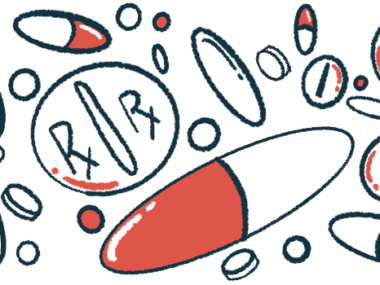Enrollment complete in new trial of approved ALS therapy Relyvrio
Phase 3 PHOENIX study testing safety, efficacy of the former AMX0035
Written by |

A large Phase 3 trial designed to confirm the safety and efficacy of the approved therapy Relyvrio (sodium phenylbutyrate and taurursodiol) for amyotrophic lateral sclerosis (ALS) is now fully enrolled.
Amylyx Pharmaceuticals announced the completion of patient recruiting for the trial, called PHOENIX (NCT05021536), which will test the oral therapy in a total of 664 people at dozens of sites across the U.S. and Europe. Top-line data is expected in 2024.
“We are grateful for the people living with ALS and their families who are participating in PHOENIX and the dedication of the study investigators,” Joshua Cohen and Justin Klee, co-CEOs of Amylyx, said in a company press release.
“We remain committed to continuing research and exploring the full potential of [Relyvrio] as part of our mission to one day end the suffering caused by ALS and other neurodegenerative diseases,” they added.
Relyvrio, formerly called AMX0035, is a fixed-dose combination of two compounds — tauroursodeoxycholic acid and sodium phenylbutyrate — that block stress signals involved in nerve cell damage and ALS progression.
Confirming the effectiveness of Relyvrio post-approval
The treatment’s effectiveness and safety was originally investigated in a Phase 2 clinical trial called CENTAUR (NCT03127514). That trial, completed in 2019, involved 137 adults with recently diagnosed and rapidly progressing ALS.
The results showed that Relyvrio significantly slowed functional decline and extended survival, compared with a placebo.
Amylyx used that data to support its application for Relyvrio’s approval in the U.S. and its conditional approval in Canada — where the therapy is marketed under the brand name Albrioza. In Canada, more data is needed to support full regulatory approval of Relyvrio.
The PHOENIX trial was designed to confirm results from CENTAUR in a larger group of ALS patients. Participants are randomly assigned to receive Relyvrio or a placebo for 48 weeks (about one year), followed by open-label treatment for up to two years. In the open-label part, both patients and researchers know exactly what therapy participants are receiving/
The trial’s main goals are to assess the therapy’s safety and changes in the rate of functional decline, as measured with the ALS Functional Rating Scale-Revised (ALSFRS-R). Other goals include changes in lung function, quality of life, and survival.
We anticipate that PHOENIX will help us generate further data about the safety and efficacy of [Relyvrio].
The study is being conducted at 69 sites in the U.S. and Europe as part of collaborations with the Northeast ALS Consortium (NEALS) and the Treatment Research Initiative to Cure ALS (TRICALS), respectively.
“The Phase 3 PHOENIX trial [is] an excellent collaboration between European and United States Centers for excellence in ALS research and care,” said Leonard H. van den Berg, MD, PhD, professor of neurology at the University Medical Center Utrecht and chair of the TRICALS.
“We anticipate that PHOENIX will help us generate further data about the safety and efficacy of AMX0035,” van den Berg added.
The trial is expected to conclude in 2024 and its results could further support Amylyx’s regulatory applications — including in Europe, where the medication is under regulatory review. Amylyx expects a decision from the European Medicines Agency in the first half of 2023.
The company said the results of the ongoing trial also would likely be needed for full approval of the therapy in the European Union if conditional marketing authorization is granted.
“We are pleased to share this milestone from the PHOENIX trial, a collaborative effort to advance our scientific understanding of ALS and build upon the positive data from our Phase 2 CENTAUR trial,” said Sabrina Paganoni, MD, PhD, principal investigator of CENTAUR and a member of the NEAL’s executive committee.
Relyvrio also is being tested as a potential treatment of other neurodegenerative conditions, such as Alzheimer’s disease and Wolfram syndrome.





